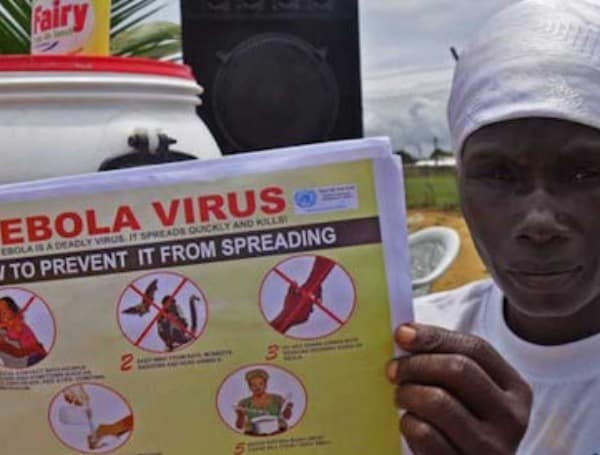Following confirmation by the Guinean government of the worrying resurgence of the Ebola epidemic in the N’zérékoré region in South-East Guinea, near the Liberia and Côte d’Ivoire borders, UNICEF is working closely with health authorities to provide technical and logistical support to urgently respond to the new Ebola outbreak.
Yes, Ebola is back, in West and Central Africa.
Through its field office located in in the affected N’zérékoré region, UNICEF is working in coordination with the Regional Directorate of Health, WHO and other partners to develop and rollout the emergency Ebola response plan, especially in the areas of risk communication and community engagement, infection prevention and control; water, sanitation and hygiene; pediatric care; and supplies and logistics.
White House Press Secretary Jen Psaki said, “Ebola has again emerged, simultaneously, in both Central and West Africa. The world cannot afford to turn the other way. We must do everything in our power to respond quickly, effectively, and with commensurate resources to stop these outbreaks before they become largescale epidemics.”
“President Biden has been briefed on the situation in both Central and West Africa, and his prayers are with the families of those who have died and those who are impacted by Ebola, COVID-19, and other ongoing global health challenges. The Biden Administration will do everything in its power to provide U.S. leadership to stop these outbreaks, working with the affected governments, the World Health Organization, the African Union and the African Centres for Disease Control and Prevention, and neighboring states,” said Psaki.
“On February 16, National Security Advisor Jake Sullivan spoke with the Ambassadors of Guinea, Democratic Republic of Congo, Sierra Leone, and Liberia to the United States to convey the United States willingness to work closely with the governments of affected countries, and neighboring countries whose citizens would be at risk of the current outbreak spread. Mr. Sullivan emphasized President Biden’s commitment to provide U.S. leadership to strengthen health security and create better systems for preventing, detecting, and responding to health emergencies,” Psaki said.
An Ebola epidemic hit West Africa between 2013 and 2016, officially causing more than 11,300 deaths in three countries (Guinea, Liberia and Sierra Leone), including more than 2,500 in Guinea. Guinea is currently facing three epidemics (yellow fever, measles, polio and Ebola), in addition to the COVID-19 pandemic.
“Guinea has a lot of experience in fighting Ebola, and UNICEF salutes the Ministry of Health for taking action quickly. Mobilizing the COVID-19 coordination structures is a great start for synergy and speed”, said Pierre Ngom, UNICEF Guinea Representative.
Ebola Virus Disease (EVD) is a rare and deadly disease in people and nonhuman primates. The viruses that cause EVD are located mainly in sub-Saharan Africa. People can get EVD through direct contact with an infected animal (bat or nonhuman primate) or a sick or dead person infected with Ebola virus.
The U.S. Food and Drug Administration (FDA) has approved the Ebola vaccine rVSV-ZEBOV (tradename “Ervebo”) for the prevention of EVD.

